






NASHVILLE BAR JOURNAL (ISSN1548-7113) (USPS 021-962) is published bi-monthly by the Nashville Bar Association, 150 4th Ave N, Ste 1350, Nashville, TN 37219. Periodicals Postage Paid at Nashville TN.
POSTMASTER: Send address changes to Nashville Bar Journal, 150 4th Ave N, Ste 1350, Nashville, TN 37219-2419.
No part of this publication may be reprinted without written permission of the Nashville Bar Journal Editorial Committee. All articles, letters, and editorials contained in this publication represent the views of the authors and do not necessarily reflect the opinions of the Nashville Bar Association. For more information, visit NashvilleBar.org/NashvilleBarJournal
The Nashville Bar Journal welcomes discourse. You may submit counterpoint editorials toAdrienne.BennettCluff@ nashvillebar.org to be considered by the editorial committee for publication in a future print or online content.
NASHVILLE BAR ASSOCIATION
150 4th Ave N, Ste 1350 Nashville, TN 37219 615-242-9272 | NashvilleBar.org
The Nashville Bar Association, established in 1831, is a professional organization serving the legal community of Nashville, Tennessee. Our mission is to improve the practice of law through education, service, and fellowship. The NBA—with 2,500+ members—is the largest metropolitan bar association in Tennessee.
As we enter a new year, I am pleased to write to you for the first time as President of the Nashville Bar Association. I have been heavily involved with the NBA since becoming a licensed attorney more than 11 years ago. My previous roles as Young Lawyers Division President and Leadership Forum Co-Chair cemented my passion for this organization and gave me opportunities to build relationships with many of our members while developing a deep understanding of how the NBA creates value for attorneys in all stages of the profession. It has been an honor to watch and support the NBA’s growth over the last decade, and I am excited to continue this charge in 2023.
When I reflect on my experience with the NBA, its impact and influence on my career are readily apparent. The NBA is the connection point to many of my long-standing friends and colleagues, many of whom have supported me in my ambition to one day lead the organization that has given me so much. I’d be remiss not to acknowledge the role the Young Lawyers Division of the NBA has had on my growth and the ways it pushed, educated, and empowered me personally and professionally.
Perhaps most importantly, I want to thank the NBA’s previous leaders who have been instrumental in supporting and guiding the development of many young lawyers over the years, including myself. I’ve watched them further the NBA’s mission to improve the practice of law via fellowship, education and service and am privileged to have had the opportunity to learn from these accomplished professionals. I hope I can leave a lasting positive impact on others the way they’ve left their mark on me and many others.
As the youngest attorney to hold the position of NBA president, I recognize that I am uniquely positioned to continue ensuring this organization creates value for long-standing members and is an organization of importance and relevance for attorneys who are early in their careers. I’m grateful for the relationships, opportunities, and experiences the NBA has afforded me, and I look forward to ensuring the NBA’s future is bright. That is my resolution and priority as we begin 2023, and I appreciate your support!

Sincerely, Gulam Zade n

NBA Board Meeting 4:00pm | Nashville School of Law Dial-A-Lawyer 6:00-8:00pm
NBA Historical Committee Meeting 11:30am YLD Board Meeting 12:00pm | Bradley
NBA Annual Meeting 5:30pm | Music City Center
NBJ Editorial Committee Meeting 12:00pm
NBA Historical Committee Meeting 11:30am
MARTESHA JOHNSON MOORE, President
GULAM ZADE, President-Elect
HON. MELISSA BLACKBURN, First Vice President
LIZ SITGREAVES, Second Vice President
CHARITY WILLIAMS, Secretary
FLYNNE DOWDY, Treasurer
GIL SCHUETTE, Assistant Treasurer
LELA M. HOLLABAUGH, General Counsel
JEREMY OLIVER, YLD President
MIKE ABELOW, Immediate Past President
LORA FOX, First Vice President-Elect
MARLENE MOSES, Second Vice President-Elect
CHRISTEN BLACKBURN
JAZ BOON
ERIN COLEMAN
RAQUEL EVE OLUYEMO
SAM FELKER
MANDY FLOYD
ELIZABETH FOY
MARY TAYLOR GALLAGHER
JEFF GIBSON
PAZ HAYNES
JOSEPH HUBBARD
KIM LOONEY
JUNAID ODUBEKO
KAYA GRACE PORTER
MARIE SCOTT
TIM WARNOCK
LUTHER WRIGHT

ABBY SPARKS, Executive Director
CAMERON ADKINS, CLE Director
ADRIENNE BENNETT CLUFF, Marketing & Communications Coordinator
TRACI HOLLANDSWORTH, Programs & Events Coordinator
SUSAN JENCZYK, Finance Coordinator
VICKI SHOULDERS, Membership Coordinator, Office Manager
The Nashville Bar Foundation is now accepting grant applications for 2023. If you know of any 501(c)(3) organizations that may be eligible for a Foundation Grant, please spread the word. Grant eligibility and application guidelines can be found at NashvilleBar.org/NBFGrantGuidelines . The Foundation will allocate funding each budget year on the basis of written applications in a format prescribed by the Foundation. Grant applications can be found at NashvilleBar.org/NBFGrantApplication and are due in mid-January. Watch your NBA Weekly Update for further information. n
Last chance to renew your dues! The 2022 NBA membership year has officially ended. To ensure uninterrupted member benefits, please renew online at NashvilleBar. org/Renew or contact Vicki.Shoulders@nashvillebar.org . Thank you for your continued support and membership— we appreciate you! n

Join the YLD on Friday, February 24, and Saturday, February 25 at the Metro Courthouse for the 2023 YLD Mock Trial. Save the Date and watch for more details on how to volunteer! n
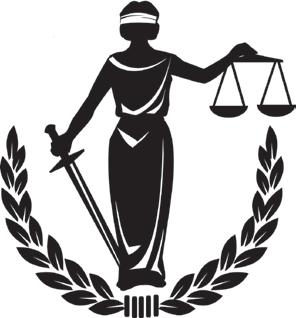

We want to hear about the topics and issues you think should be covered in the journal. Send your ideas to Adrienne.BennettCluff@nashvillebar.org
The Nashville Bar Foundation (NBF) is currently requesting nominations for the 2023 David Rutherford Award. This award will be given to a Fellow of the NBF who exemplifies the memory and ideals of David Rutherford, which include professionalism, charitable contributions in the legal field and in the community as a whole, and the spirit of collegiality among the bench and bar. The nomination form can be found at NashvilleBar.org/RutherfordAward . The deadline for nominations is Friday, December 9. n
Congratulations on your membership—thank you for joining the NBA! We look forward to serving you this year and appreciate your support. Visit NashvilleBar.org or contact Vicki.Shoulders@nashvillebar.org with questions or to learn more.
Allyson Agee-Jodway
Craig Allison
Olivia Al-Sadi
Olivia Arboneaux
Auva Attar
Wesley Barbee
Melanie Barksdale
Katherine Barnes Lindsey Bars
Christopher Biller Connor Blair Zach Boulden
Reese Bourne
Thomas Brothers Nickolas Bryant
Stacia Burns
Jay Campbell
Gabriella Cannone
Adriante Carter
Ilse Chavez
Evalina Cheadle
Catherine Cocke
Kenneth Conour
Kenesia Cook
Austin Correll Ruffin Craig
Patrick Cumpton
Taylor Dahl
Wyatt Decker
Gabriella Del Gandio
James DeLanis
Katherine Denney Halle Diaz
John Dodd
Zoe Doyle
Christopher Dunbar Tony Duncan
Devin Dunkley
Savannah Edmonds
Ruffo Espinosa
Alice Essary Phillip Ewing
John Fahner
Steven Fann
Corinne Fombelle Kenya Freeman William Garcia Aubrey Garrido Madison Gattis Jing Geng Hallie Gillam Courtney Gilmer
Nicole Giometti-Black
Brandis Godwin
John Grant Carla Grebert
Katherine Griffin
Jeremy Gunn Emily Guthrie
Gabrielle Haddad
Thomas Hall
Anne Hamer
Ashley Harbin Kristen Harvey
Fred Harwell
Candi Henry Ryan Henry J. Hobbs
JP Horton Maggie Hunt
Christopher Huntington
Brooke Huppenthal Brian Hurst Matthew Jacobs
Matthew Jafari
Matthew Janssen
Marc Jenkins
Jillianne Jerkins Brady John Kameron Johnson Zane Jud
Hannah Ketring Brown Isaac Kimes
Melanie Koewler
David Komisar Kiel Kovalcik Kaity Krupp Scott Kunde Stanley Kweller
Christopher Lackey Tara Ladd
Bobbie Jean Lamar
Julie Lampley Johnson Laney Ann Langley John Larkin
Elizabeth Leiserson Denise Lepselter Thomas Lewis Latoyia Mackey William Maddux Ann Mahoney John Manson Hunter Mason McCall Matlock
Hannah McCann Andrew McClanahan
William McCormick
Matthew Mcgraw Hugh McKinnon Jeffrey Melcher
Stephanie Merida
Madalynn Mershon
Kelley Meyerreicks
John Mihalczo
Ann Mikkelsen
Marc Miles Megan Miller
Neal Miller
Richard Modrzynski
Charles Nelson Laurel Newman Aarika Nieto Seth Norman Sara Norton Carter Norvell Austin Ostiguy Zac Oswald Brendon Pashia Alisha Patel Krishna Patel Julie Payne Sandra Pearce Laura Penney Hayley Pogue Lauren Pratt
Benjamin Puckett Alexandra Rivera
Arianna Robbins
Joseph Robinson
Claire Rowland Mason Rush Harold Rushton Colleen Ryan Kenny Saffles Claire Sawyer Martha Schull Kevin Seguin
Jackie Sharp
Deke Shearon
David Shepherd
John Sinclair
Kathryn Skagerberg
Matthew Smith
James Sperring
Joel Stampley
Reagan Stanfill
Talia Stein
Katie Stenberg
John Stevens Jordan Stringer Janet Summey Elena Surmen Thomas Swafford Jeffrey Usman
Jessica Van Dyke Lida Vanorman Jacob Vanzin Kristen Walker Monte Watkins Connor Webber
Robert Wells
Amelia White Mark Wildasin
Mattielyn Williams
Stephanie Williams
Luke Willoughby Thomas Wiseman
Elizabeth Wolfe Emma Wolfe Andrew Wood Qianlu Ying Madison Young

For those of you who have attended this year’s Bill & Phil Show (and I know there aren’t many of you), we have been speaking about the metaverse all year because the topic is so “trendy.” In fact, the theme of this year’s Bill & Phil presentation was entitled “Are You Ready for the Metaverse?” It has been a very fun topic for us, but we are not sure where this whole metaverse thing is going. We have been following the progress of the metaverse (or lack thereof) all year. At this point, we are still not sure what impact, if any, the metaverse will have on society in general, or, more specifically, on the practice of law... at least in the foreseeable future.
Consequently, we thought that, at this time, we should provide our view of the present and future impact of the metaverse on the practice of law. So here it is...
Wikipedia describes the term “metaverse” as follows: “In futurism and science fiction, the metaverse is a hypothetical iteration of the Internet as a single, universal and immersive virtual world that is facilitated by the use of virtual reality and augmented reality headsets. In colloquial use, a metaverse is a network of 3D virtual worlds focused on social connection.” (That is so simple and clear, isn’t it?) Wikipedia goes on to point out that the term actually originated in a 1992 science fiction novel written by Neal Stephenson entitled “Snow Crash.” Matthew Ball, a tech author and thought leader, has been a leading voice on the emergence of the metaverse and has written extensively on the subject on his eponymous website MatthewBall.vc and in a recently released book, “The Metaverse
And How It Will Revolutionize Everything.”
Recent interest in metaverse development is influenced by a concept called “Web3,” which is supposed to become a decentralized iteration of the Internet. If you will remember, so far, we have had basically Internet version one (or Web1), which was nothing more than a development by ARPA (Advanced Research Projects Agency) of the Department of Defense in the 1960s. The technology continued to develop into the early 1980s. Then, in 1989, an English computer scientist, Tim Berners-Lee at CERN (the European Organization for Nuclear Research) developed a prototype of the World Wide Web, which was initially visioned as a document management system. Beginning in 1991, however, the technology was released outside of CERN, and it began to spread beginning late in 1991. In fact, the technology spread like wildfire and developed into what we now know as the World Wide Web and, really, what we know of today as the Internet. Today’s Web is referred to in a shorthand way as “Web2”, being distinguished by dynamic sites with user-created content, such as social media sites, video-sharing apps, etc. Many view the metaverse as the natural progression from Web1 to Web2 to Web3.
Nevertheless, the concept of Web3 or the metaverse still seems very vague and ill-defined. In its present incarnation, the Metaverse is primarily a space for online video games, entertainment, and marketing. Multiplayer online games such as “World of Warcraft,” “Minecraft,” “Fortnite,” and the game creation platform “Roblox” are the major players in the “metaverse” as it presently exists. In addition, superstars like Travis Scott, (continued on page 8)
Justin Bieber, and Ariana Grande have held virtual events on the metaverse with significant success. For example, Travis Scott’s appearance on Fortnite has been attended by nearly 28 million people. In fact, Nashville’s own Soccer Mommy has recently promoted her new album by hosting three days of events and a concert on Roblox. The Brooklyn Nets, an NBA team, has created the “Netaverse” that has provided a virtual broadcast of their games, so you could watch it as if you were at the court.
Of course, as most of you know, some of the biggest players in the tech world are becoming involved with the metaverse. The most extreme example is Facebook. Facebook has now changed its name to “Meta” (short for “Meta Platforms, Inc.”) with Mark Zuckerberg asserting that the metaverse is the future of technology and the future for his company. Unfortunately, it is not working out so well for Meta so far. Last year, Facebook had a market cap of over one trillion dollars, and now the company is worth $560 billion. Meta CEO Zuckerberg has warned that the technology necessary to enable the metaverse is still five to ten years away. Stockholders may not be that patient.
Microsoft is also dabbling in the metaverse. It acquired Activision Blizzard, which has technology that is the cutting-edge development platform for interactive and entertainment products that are the foundation of the metaverse. Microsoft paid $70 billion for the company earlier this year, not a small purchase. Apple is also dipping its toe into the metaverse, but in typical Apple fashion, it is being much more cautious and deliberate in its involvement. Apple is rumored to be developing its own proprietary set of goggles or glasses that
can be used to interact in the 3D world of the metaverse. It remains to be seen how far Apple will venture into this wild, wild virtual wilderness.
Suffice it to say, the metaverse is still being built and will remain “under construction” for some time in the future. Currently there are several “worlds” in the metaverse such as Otherside, Decentraland, the Sandbox, and so on. To date, $1.9 billion worth of “land” has been sold in the metaverse (and remember, this is all “virtual real estate”). There are night clubs, mini-golf facilities, shopping malls, poker lounges, and even a Sotheby’s Auction House. Other businesses include: Google, Facebook, Microsoft, Amazon, Apple, IBM, Chase Manhattan Bank, Adidas, Nike, and the list goes on and on.
Clearly, there is a lot of money and capital being poured into the metaverse; but what effect will all this “virtual development” have on the practice of law?
As might be expected, in an effort not to be outdone, many large law firms (and some smaller ones) are buying “office space” in the metaverse. ArentFox Schiff is in the metaverse as are the DLA Piper Global Law Firm, Kirkland & Ellis, and several others. Morgan & Morgan even has a television spot seeking clients who have been injured in the metaverse.
Many legal pundits assert that law firms should be investing in the metaverse. Some argue that by having an office in the metaverse, lawyers will have a chance to increase their exposure to potential clients and reach them in new ways. They will have an advan-

Mark Zuckerberg, CEO of Meta, predicts the metaverse will be “the biggest opportunity for modern business since the creation of the internet.” While Zuckerberg recently faced backlash over the reportedly low current usage, one cannot help but notice the continued hype, partnerships, investments, and developments in the space. Large and small businesses, celebrities, and even law firms continue to stake their places in the metaverse, thereby begging the question of when, not if, the metaverse predictions will come to fruition. Just as the internet changed the practice of law, introducing new methods of communication, research, and legal challenges, the metaverse will do the same. Preparing and informing ourselves for this digital disruption will be key in maintaining legal competency, ethics, and competition. Below, we venture into some legal areas which are already being affected.
Privacy and security are far from new legal topics. Both global and domestic privacy laws have been a focus over the last few years, with the emergence and focused enforcement of laws such as the General Data Protection Act (GDPR), California Consumer Privacy Act (CCPA), and the Illinois Biometric Information Privacy Act. As companies are grappling to maintain compliance with the ever-changing privacy landscape, the metaverse will likely bring forward heightened and new considerations. One Forbes article quoted that in just twenty minutes of virtual reality use, technology can generate some two million unique data elements. Right as
heightened concern over consumer privacy has elicited regulatory enforcement concerning privacy violations involving biometric and location data, the metaverse entails a virtual world, accessed by virtual-reality goggles and haptic vests, collecting millions of unique data elements such as the way you breathe, walk, think, move or stare. While some may see opportunity for tailored experiences, technologies and companies collecting and leveraging this information must ensure compliance with applicable privacy laws.
Intellectual property is an area already immersed in litigation and legal speculation. As businesses and consumers adjust to the digitization of business opportunities, trademarks, copyrights, and patents are front and center. Litigation involving virtual Birkin handbags known as “MetaBirkins,” knock-offs of Bored Ape Yacht Club Non-Fungible Tokens, and unauthorized images of Nike shoes were quick to make headlines and incentivize companies to protect themselves in a digital world. In fact, a source from The Law Office of Michael Kondoudis detailed that between January and September of 2022, the USPTO received more than 9,000 metaverse-related trademark and patent applications.
As businesses continue to immerse themselves in the industrial nature of the metaverse, there is an increase of e-commerce,

Be the first person to email the correct answer to Adrienne.BennettCluff@ nashvillebar.org, and your name—along with the correct answer—will appear in the next issue.
Congratulations to Judge Cynthia Chappell of the Criminal Court, Division VI for correctly identifying the individuals in last issue’s photo! From left to right: Cecil Branstetter, Jane Stranch, & Harry Phillips.


a lawyer. She grew up watching her uncle, Julian Blackshear, a prominent attorney in town. By observing him, Dalton saw a future where she could have an impact on her community, which was her ultimate desire.
In a bittersweet memory, Judge Dalton recalls the last conversation she had with then-presiding Judge Phil Smith, when he asked her if she would be presiding judge pro-tem. She happily agreed, of course without knowing that a few days later, he would be gone. The next time the trial court judges met, they elected Dalton to be the new presiding judge, and with that single vote, she became the first African-American presiding judge of the trial courts in Davidson County.
Dalton, the youngest of three, grew up in Nashville. Her father, originally from Georgia, had been in the Air Force and stationed in Smyrna before attending Tennessee State University, and her mother grew up in Nashville. Dalton attended Whites Creek High School where she met her now-husband, Derrick.
Following high school, Dalton moved to Jackson, Tennessee, to attend Lane College, where she studied English. She attributes that time with helping to discover herself by being just far away from home and family. At the time, Lane had less than 1,000 students so it allowed for Dalton to continue her education in a more intimate setting.
Dalton knew she wanted to be
After college, Dalton moved back to Nashville for a year to work for a small firm, Jones & Shockley, as a legal assistant. Through that experience, Dalton thought she had found her legal path through transactional law. She left Nashville to attend the University of Toledo Law School. While the weather was not Dalton’s favorite, she enjoyed her time in law school. There, she developed great friendships including one with fellow student, Judge Allegra Walker.
Despite initially considering transactional law, Dalton changed her mind after a couple internships. She worked for Justice Birch on the Tennessee Surpreme Court after her first year. That summer internship provided her a deeper look into criminal law beyond what Hollywood portrayed. During her second summer, Dalton completed an internship with the Blount County DA’s office where she gained courtroom experience that solidified her desire to be a litigator.
After finishing law school, Dalton moved back to Nashville and accepted a position in the DA’s office. Her first assignment was on the domestic violence (DV) docket. At that time, she knew little about what DV involved, but ultimately grew a passion for that work. She worked the DV docket and spent some time in juvenile court before her final placement in criminal court. Having worked in just DV and juvenile court, Dalton wanted to expand her experience.
Dalton had never really considered being a judge until 2005. She recalls a lunch with her coworker, Rob McGuire, where he encouraged her to run. After some thought and a talk with her husband, Dalton quit her job and announced she was running for one of the upcoming vacancies in General Sessions. Dalton bested three primary contenders and one in the general election and took the bench in Division III in 2006, making her the first African-American female elected to that role in Davidson County. She was re-elected to another term in 2014.
When Judge Randall Wyatt retired in 2017, Governor Haslam appointed Dalton to fill his seat, thus making her the first black female trial court judge in Nashville. She was elected to a full term in 2022. In her role as judge of Criminal Court, Division II, Dalton hears all types of criminal cases. She also has the privilege of leading the women’s residential drug court, which is the only one of its kind in the state. Dalton says her new role as presiding judge is going well so far, which she credits to her supportive colleagues and great staff.
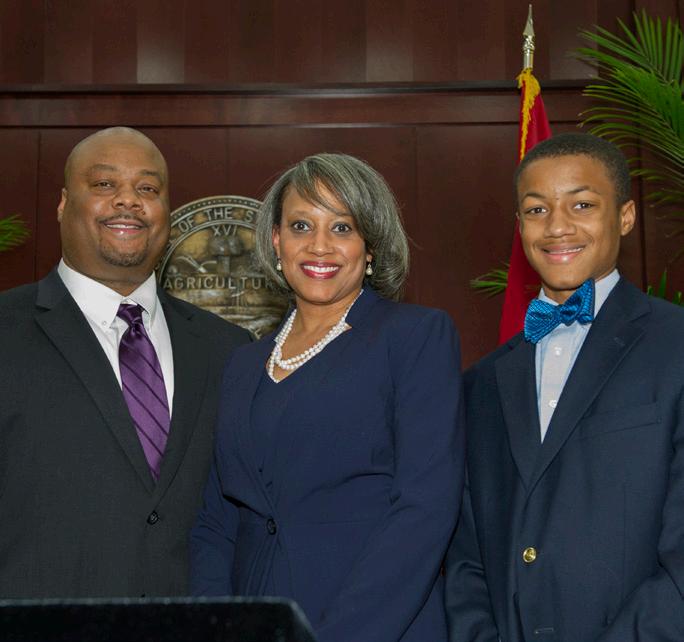
Dalton and husband Derrick live in the Nippers Corner area and attend the Greater Bethel AME Church. Their son Ryan, 19, attends Tennessee Tech, where he studies business finance. n
BART PICKETT is an attorney at the Law Offices of Julie Bhattacharya Peak where he represents Liberty Mutual Group, Inc.’s insureds and customers of its affiliated groups in litigation throughout Middle Tennessee.
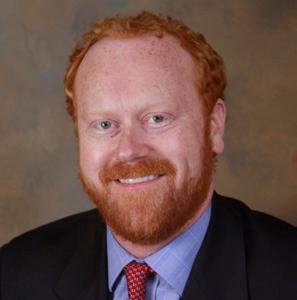
public events, and employment related opportunities in the digital world. As in the real world, these opportunities often involve electronic contracting: browsewrap agreements, click-wrap agreements, scroll-wrap agreements, and sign-in-wrap agreements. Ensuring those venturing into the metaverse receive proper notice and permissions will be an evolving area for savvy attorneys.
Inevitably, metaverse litigation will evolve, and electronic discovery may be a key hurdle metaverse litigants face. While the metaverse may be a new concept to many, the collection and production of electronically-stored information is not. Industry standards and processes for collection of video, audio, and message content will likely be adapted for specific collection in the metaverse. However, some of the individuality of the metaverse highlights unique issues in this industry. For years, the legal industry will likely be tackling electronic discovery issues such as the ability to collect data in a decentralized platform, the unique types of data sources which may be requested, the anonymity associated with avatars and potential custodians, the custody and control of data in the metaverse, the presentation of unique data sources, and the increased costs associated with the vast amounts of data.
Finally, while the legal landscape for potential client matters will change, the ability and way for lawyers to practice law is also an opportunity some are embracing. Growing numbers of law firms around the globe have purchased digital land and promote a metaverse-located office. This opportunity to expand legal practice has received praise in its ability to reach new clients and provide comfort and anonymity in a potential client conversation but has also garnered much skepticism and concern over data privacy and ethical confidentiality in a digital world. Even with these challenges, many are creating a presence on the metaverse to explore practical applications in the digital world.
As with most technologies, metaverse creation began before the legal landscape adjusted. While this technology continues to evolve, it has the potential to disrupt many areas for many lawyers and will be worthwhile to stay informed. n


MALLORY ACHESON focuses on privacy and security compliance, technology transactions, and the intersection of data and electronic discovery issues. Mallory helps clients navigate domestic and internal privacy laws, including CCPA/CPRA, GDPR, TCPA, HIPAA, and GLBA. She currently works at Nelson Mullins Riley & Scarborough.

JASON I. EPSTEIN is the co-head of the technology and procurement industry group at Nelson Mullins Riley & Scarborough. Jason and the technology team provide legal services to buyers and sellers of technology both domestically and internationally in various industries, from FinTech and HealthIT to auto and manufacturing.
Dial-A-Lawyer is held the first Tuesday of each month from 6:00–8:00pm, and the public is invited to call in with basic legal questions. If you would like to volunteer and help the NBA support this program, please contact Traci Hollandsworth at Traci.Hollandsworth@nashvillebar.org
Complimentary dinner is provided.
To learn more, visit NashvilleBar.org/DialALawyer
Thank you to our October & November volunteers!
tage in handling metaverse-related legal issues; and it’s a chance for a law firm to look really cool and cutting edge.
Migration into the metaverse may take quite some time, however. Traditionally, the law and law firms have always lagged a step or two behind developing technology. Law firms and the law typically react to tech changes rather than getting out in front of them. There are many issues to be raised about transacting business and operating in the metaverse. There is almost no established law relating to the metaverse; and, in fact, there is little known about how the metaverse works, and how it will work in the future.
Still, there are many opportunities for law firms such as creating so-called “smart contracts” that are self-executing contracts based on certain established parameters. There are opportunities for decentralized autonomous organizations (DAO). These are emerging corporate-type entities that do not have a central governing body. In fact, Tennessee has just legalized the creation of such entities in this State.
Lawyers that become familiar with the metaverse, its technology and operation, can provide legal advice to those that are interested in purchasing space in the metaverse, and how to protect digital assets, digital intellectual property, and other such transactional-type work for those that are participants in the metaverse.
There are many opportunities for using the metaverse in the litigation world as well. For example, an attorney can meet with a potential witness in the metaverse in a way that is very realistic and looks like the potential witness and the lawyer are together in the same space. There can be virtual office meetings between and among attorneys preparing for trial in the metaverse that will make it much more
interactive and realistic. Depositions, expert witness testimony, and so forth all can be much more realistic and interactive even though the participants will be in remote locations.

The proof in trials, especially in criminal cases and accident cases, can be much more realistic. The jurors can be taken to a virtual world where the parties recreate their concepts of what events took place in a much more realistic manner. In fact, a Florida attorney (who is representing a person accused of attempted murder using a Dodge Viper to attack someone) filed a motion with the court to put “jurors in the driver’s seat through the use of the latest technology—virtual reality goggles.” The proof would be put on by requiring the jurors to wear virtual reality goggles while considering the expert testimony of an accident reconstructionist (What would Jim Neal and Jack Norman think of this?)
In the Future, will Lawyers be Required to Participate in the Metaverse?
No pun intended, but “the jury is still out” on the metaverse itself, much less the use of the metaverse in the practice of law... much less lawyers’ involvement with it. Theoretically, the metaverse would be a great place to interview witnesses and prepare for trial. It would be a great place to recreate reality for a trial. It would be a great place to have new and exciting areas and modes of practice.
However, as is evidenced from the discussion above, the metaverse is not “ready for primetime.” It certainly is reliant upon large amounts of error-prone technology. And, the legal rules in the metaverse are very ambiguous. Normal rules may not apply. It is very, very complicated, and there is not that much opportunity for a law practice in the metaverse
at this time.
Moreover, the practice of law has always relied on true, human interaction... empathy for one’s client; direct confrontation of adversaries; and skillful, in-person advocacy. It is hard to see how any of those things can be present in the metaverse absent the creation of some sort of new virtual presence technology. This technology is still in its embryonic stages, and there is no prediction regarding whether it will live up to all of the hype it is presently receiving. Certainly, Meta (formerly Facebook) has had experience in its efforts in the metaverse that has almost been devasting. Only time will tell whether the future holds a place in the metaverse for the practice of law on a daily basis.
See you next month, Bill and Phil n
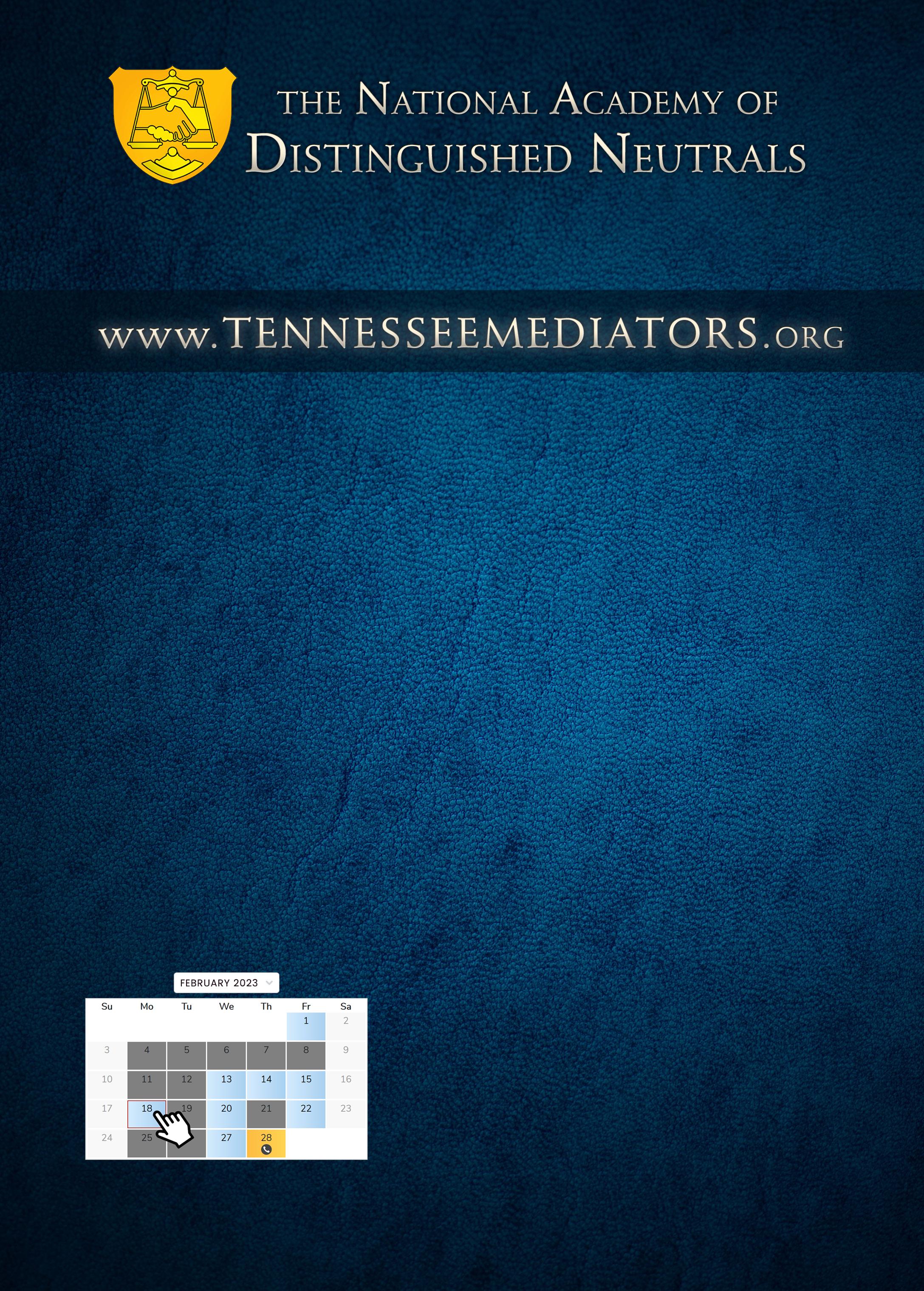

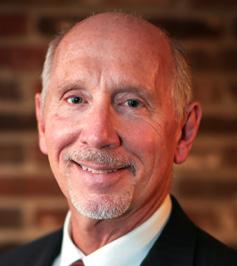
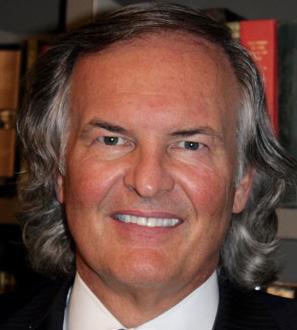
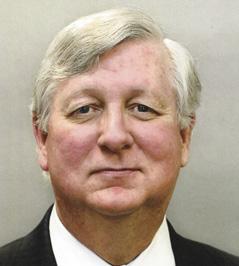
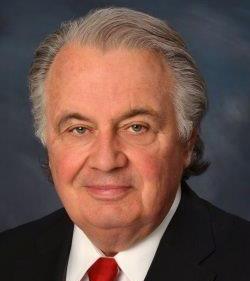
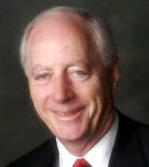
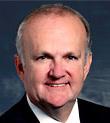
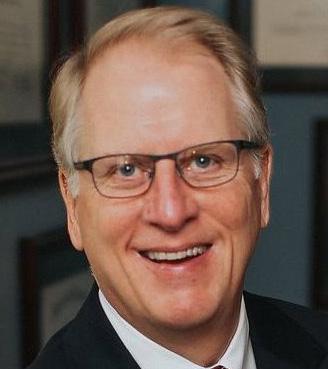
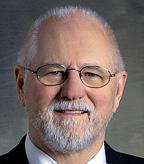
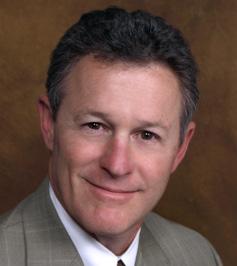
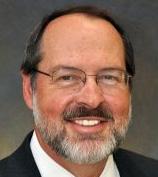
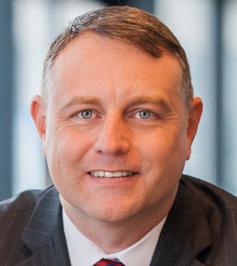
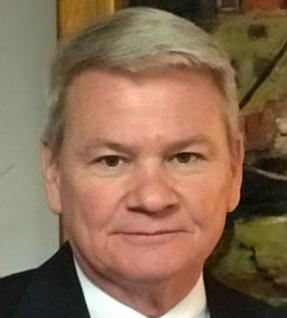
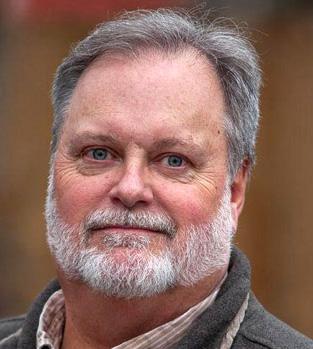
A Crypto primer:
• Cryptocurrency, or Crypto, is a digital currency.
• Crypto is completely decentralized, meaning that it is not issued nor controlled by any central banking authority.
• Crypto transactions are recorded on a public transaction database using a technology called blockchain.
• Blockchain technology is essentially a distributed ledger book.
• Bitcoin was the first cryptocurrency ever created but now there are more than 9,000.
• Bitcoin and Ether are the most popular cryptocurrencies, with Bitcoin having the higher market capitalization but Ether being the more environmentally friendly and versatile.
For many years, Crypto was a small and misunderstood technology, operating on the fringe of the public consciousness. In many ways, it remains misunderstood, but it is anything but small: at this time last year, the International Monetary Fund estimated the cryptocurrency market capitalization at approximately $2.5 trillion,1 and while that fell upon a large market contraction, the Crypto market cap is still north of a trillion.

It is undeniable that Crypto has gone mainstream– with Crypto exchanges making the once opaque Crypto purchasing process more seamless and transparent, around twenty percent of Americans have purchased Crypto at some point.
The explosion in Crypto’s popularity has granted Crypto legitimacy but also drawn criticism, in somewhat equal parts. Crypto
evangelicals tout Crypto’s decentralization, anonymity, and the plethora of potential applications and integrations; its detractors criticize the utilization of Crypto for illegal or terrorist operations, the risk and instability in the market, and the “Wild West” regulatory landscape.
With such unprecedented amounts of money being invested in such prescient technology, governments, NGOs, and investors are now calling for a comprehensive regulatory framework, as well as warning of economic destabilization and capital market disruption in the absence of that framework.
One of the core issues in establishing a regulatory framework is how to treat Crypto “coins” or “tokens,” the terms used to describe units of cryptocurrency. Some, including Gary Gensler, the Chair of the Securities and Exchange Commission (SEC), have argued that Crypto coins are securities, which would bring them under the domain of SEC authority; however, others counter that Crypto coins are more akin to futures, which would subject them to Commodity Futures Trading Commission (CFTC) regulation. This issue has been at the heart of efforts to regulate the Crypto market.
Earlier this year, a bill was introduced in the Senate that attempts to answer this question. The Digital Commodities Consumer Protection Act of 2022 (DCCPA) would provide some delineation of responsibility for regulation of the Crypto market. Under the DCCPA, the CFTC would have exclusive jurisdiction over the regulation of the trading of “digital commodity[ies].” The DCCPA explicitly defines Ether and Bitcoin as crypto coins subject the CFTC’s jurisdiction.

Compared to other industries, technology is slow to impact the legal system in major ways. In general, high-profile technologies apply most prominently to professional fields like health and computer science, but that does not mean that technology leaves other professional fields untouched. Since about the 2000s, computer technology has changed the legal industry by making administrative and pretrial processes faster, more accessible, and more eco-friendly. More recently, technological advancements have prompted legal reform and raised speculation about the future of legal decisions. Some of these reforms are already affecting Tennessee courts, bringing both supporters and critics. Other technology-based reforms, while either cost-prohibitive or not yet enacted, are still only being discussed as possibilities. In all these cases, the face of the court system is changing, and attorneys of all practices need to be prepared for an evolving landscape.
Perhaps the most recent high-profile use of technology in the legal system is in bail reform. The introduction of algorithm-based pretrial risk assessment across the country is an attempt at removing bias from the system, and after several
years, experts are still debating its efficacy.
Although implemented across many states and major cities, there are no unified guidelines for implementing predictive algorithms, and the algorithms can vary widely according to region. As such, legal professionals and reform advocates alike take issue with the way these algorithms are designed and marketed within the industry. Many critics, including those in Tennessee, note that the algorithms continue to show the inherent bias of their creators; for example, Tennessee Senate Bill 67, which passed in May of 2021, states that a magistrate “must consider any available results of a validated pretrial risk assessment conducted regarding the defendant for use in the jurisdiction and the defendant’s financial resources.” However, guidelines pertaining to the creation of such algorithms are left unaddressed, and detractors – particularly House Minority Chairman Vincent Dixie – went on record claiming such algorithms are “inherently bias” because they may use where people live, level of education, and their parents’ marital status, and more when making assessments.
Some courts have chosen not to rely specifically on algorithms due to these accusations of bias and, instead, are (continued
NBA is your source for cutting edge, quality continuing legal education. We provide more than 600 hours of live and distance learning programming while offering our members discounted rates. For a complete calendar, full seminar agendas, and registration, visit NashvilleBar.org/CLE.

Come have an interactive conversation with Judge Thomas Brothers! The NBA will provide a pizza and salad lunch at 11:30am, which will be followed by an hour-long presentation related to courtroom practice and insights into Judge Brothers’ courtroom with the opportunity for questions.
PRESENTERS
Judge Thomas Brothers Sixth Circuit Court Judge DETAILS Seminar 12:00 – 1:00pm
OVERVIEW
Gain valuable insights on trial practice procedure from Davidson County Chancellors.

PRESENTERS
Chancellor Patricia Head Moskal Chancery Court, Part I Chancellor Anne C. Martin Chancery Court, Part II Chancellor Russell Perkins Chancery Court, Part IV DETAILS Seminar
NBA is your source for cutting edge, quality continuing legal education. We provide more than 600 hours of live and distance learning programming while offering our members discounted rates. For a complete calendar, full seminar agendas, and registration, visit NashvilleBar.org/CLE.
Gain valuable insights on trial practice procedure from Davidson County Judges.
Maria Salas
Clerk and Master Davidson County Chancery Court Joseph Day Davidson County Circuit Court Clerk
Judge Joseph Binkley Fifth Circuit Court Judge
Judge Amanda McClendon Second Circuit Court Judge Judge Lynne Ingram Eighth Circuit Court Judge
DETAILS
1:15 – 4:15pm Credit 2.75 General Location Hybrid (NBA Office & Virtual - Zoom) COST NBA Members
Get tips for practicing in the U.S. District Court for the Middle District of Tennessee. This institute will present information directly relevant to federal practice in this district, including a discussion by Magistrate Judges Alistair Newbern, Barbara Holmes & Chip Frensley on trying cases before the district’s magistrate judges, a discussion by Magistrate Judge Barbara Holmes and Samuel Funk on the use of special masters, and an ethics hour provided by Matthew Dunn of Kroll Risk and Financial Advisory Solutions on data security in the post-COVID 19 world.
For a full list of presenters, visit NashvilleBar.org/AdvancedFederalCourtInstitute. DETAILS

D. Thompson Federal Courthouse COST NBA Members $139 Non-Members

Subjecting Crypto to the jurisdiction of the CFTC enables a heretofore almost non-existent vehicle for consumer protection in the Crypto marketplace. The DCCPA includes a specific directive for the CFTC to adopt rules for digital commodity consumer protection, specifically, requiring that the CFTC promulgate rules for disclosing certain conflicts of interest and a prohibition on false and misleading practices.
But the DCCPA does not answer all open questions concerning Crypto. If passed, one of the most important questions will remain unanswered: When is a digital asset a security and when is it a commodity? Surely, the SEC, CFTC, or both will try to answer this question either through the rulemaking process or through arguments advanced in their enforcement roles, and we can expect States, to the extent not preempted, to attempt to fill in this gap as well.
State regulation of Crypto is patchwork to say the least. State laws range from defining Crypto in a way that brings it into current State regulations to passing legislation specifically tailored to address Crypto to completely ignoring its existence. Of course, much of the future of State regulation of Crypto depends on the passage of the DCCPA, or a similar law, as any federal legislation is sure to have strong preemption provisions.
The true future of State level involvement in Crypto is not necessary in Crypto coins themselves, but in blockchain-based organizations, called DAOs, or decentralized autonomous organizations. A DAO is an organization or collection of individuals or entities that come together for a common purpose but are not subject to any leadership structure; in other words, DAOs are purely democratic and have a completely flat

hierarchy. DAOs commonly use “smart contracts,” which are automated transactions carried out upon the occurrence of certain preconditions, to effectuate the governance and voting on DAO issues.
Some States have seen the rising tide of DAO usage and passed legislation recognizing DAOs as a way to entice DAOs to organize in their state. For example, Wyoming has passed legislation expanding its LLC laws to recognize DAO’s unique management structure. Wyoming has further recognized the existence of smart contracts and their role in DAO governance.
Because the nature of current and future laws surrounding Crypto are regulatory in nature, law firms that have a regulatory department will likely acquire the clients and matters related to Crypto. This also means that we will likely see firms that do not necessarily have a regulatory branch, create one. One Nashville firm, Frost Brown Todd, now markets a blockchain team that “provides strategic guidance and full-scale support to stakeholders across the blockchain and distributed finance ecosystem.” The team also helps clients vet good Crypto investment opportunities.

Some firms have grabbed at Crypto in a different way. Nashville’s Thomas Burton, PLLC now accepts Bitcoin as a form of payment for its legal services. The firm explains that transfer of Bitcoin is both easy and cheaper; as a transfer of Bitcoin has zero processing fees. n
DAYNE P. GEYER is an associate attorney at Baker Donelson. As a member of the Real Estate Group, he primarily represents builders and developers in real estate transactions.




1 Adrian, Tobias, Aditya Narain, and Dong
He. “Global Crypto Regulation Should Be Comprehensive, Consistent, and Coordinated.” IMF, December 9, 2021.

from your friends at the Nashville Bar Association

Local Solutions. Global Reach.
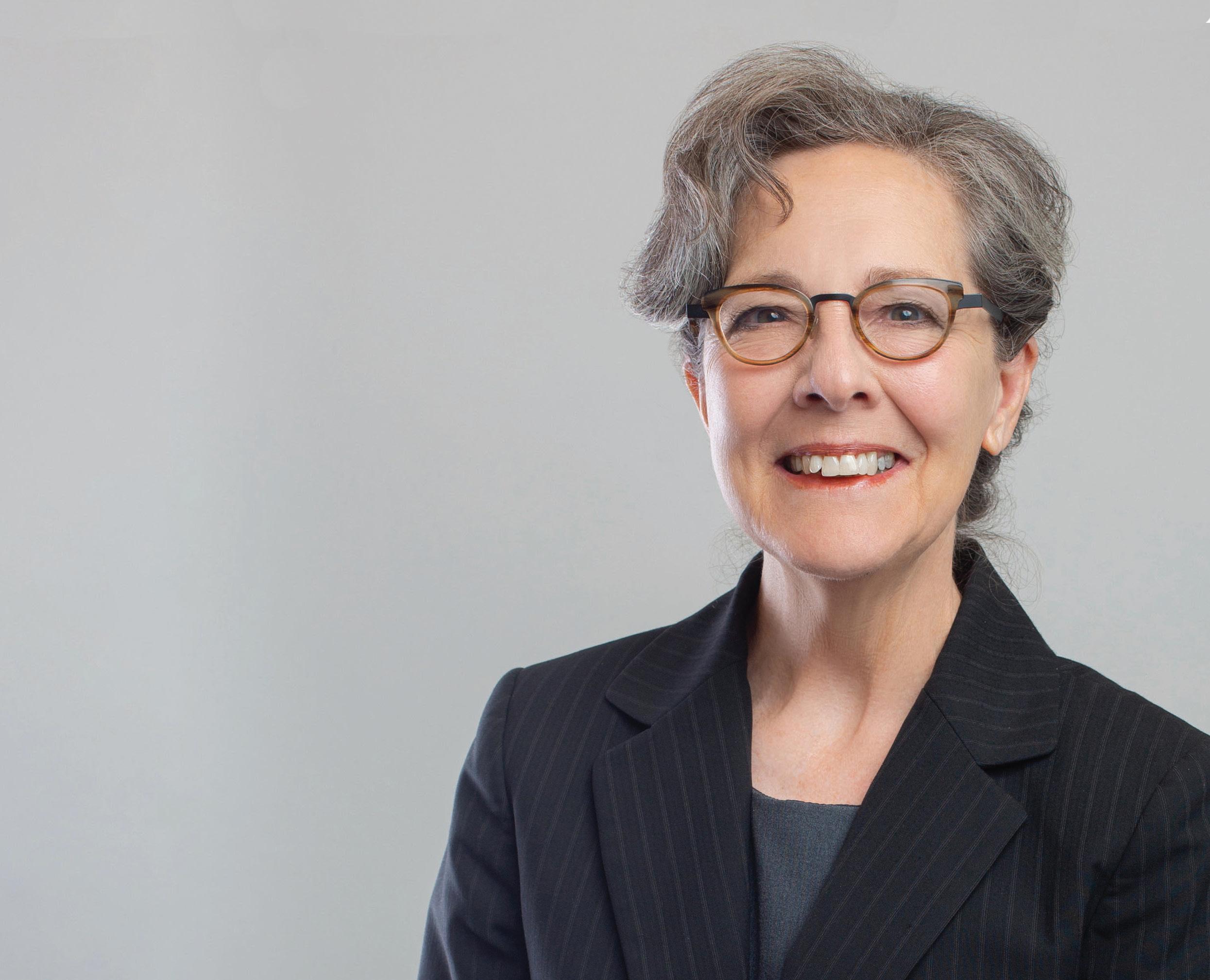

Calendar Notes.
Take a moment to send a note to our outgoing elected state officials thanking them for their service. At the same time, it’s a good time to send a note or make a call to your new state legislators just to wish them well as they face the chaos of a typical legislative session.
State and NBA offices will be closed on Friday and Monday, December 23 and 26 for the Christmas holidays and Friday and Monday December 30 and January 2 for the New Year’s holiday.
Be all the Dog you can be.

Davidson County Legislative Delegation Newcomers. In State Senate District 19, Charlane Oliver will succeed Brenda Gilmore, who decided to not seek reelection. Senator Oliver’s election will not affect the partisan balance in the State Senate where the margin will continue to be 27 (R)’s to 6 (D)’s. In House District 52, Justin Jones will succeed Mike Stewart who decided not to seek reelection. In House District 59, a relatively new district created after Jason Potts decided not to seek reelection, Caleb Hemmer prevailed over Michelle Foreman in a hotly contested general election with 52.4% of the votes cast for a margin of around 1,400 votes. These races do not affect the partisan balance in the House, but the Republicans did pick up a seat in District 41 on the Cumberland Plateau to make their majority 74-25.
January Legislative Happenings.
The 113th General Assembly will convene on Tuesday, January 10 in the first day of the Organizational Session. Even though their terms begin on election day, all the members will be sworn into office on January 10, then, both the House and the Senate will adopt
temporary rules and elect their leadership positions. House Speaker Cameron Sexton of Crossville and Senate Speaker Randy McNally are expected to be reelected to their positions without any opposition. As the Organizational Session moves along that week, the two Speakers will make their committee appointments. The legal beagles will watch closely to see who Speaker McNally appoints to chair the Senate Judiciary Committee which is our primary committee of jurisdiction in the Senate. On the House side, similar watchful eyes will await Speaker Sex ton’s appointment of a Criminal Justice Committee chair. On January 21, Gov ernor Bill Lee will be inaugurated for his second four-year term of office. His in auguration and oath conclude the Orga nizational Session, and the General As sembly will promptly begin the Regular Session with a recess for about a week to get the new members settled into their new offices. The Regular Session should be fully underway by January 30 with adjournment expected in late April or early May. All members may prefile bills for formal introduction on January 10. If SB 1 by Johnson / HB 1 by Lam berth dealing with medical care for the young is any indication, we are in for a spicy session.

State and NBA offices will be closed on Monday, January 16, 2023 for the Martin Luther King, Jr. Holiday.
The most important election is the next one, and eyes will turn to the August 3, 2023 Nashville election for Mayor, Vice-Mayor, and the 40 Metropolitan Council positions. n
PEGGY SUE is fond of the classic 1957 Buddy Holly song. When hunting legislative
passing reforms of their own. For example, Shelby County, Tennessee, reformed its bail bond system in August of 2022. Among other changes was the addition of a new bail hearing courtroom and requirement that cash bail will now come strictly as a last resort, and only after review of a person’s financial circumstances.
Although algorithms designed for pre-trial use are far more common in the news, post-trial algorithms are also seeing use in the courts. Many advocates have pushed for data-driven sentencing reform, and even the American Law Institute recognized the value of actuarial instruments in sentencing in its 2017 final draft of “Model Penal Code: Sentencing.”
These algorithms face concerns similar to those found in pretrial. Using actuarial instruments for sentencing primarily occurs in criminal courts. Opponents believe that the use of sentencing algorithms potentially interfere with the defendant’s right to due process. It can be difficult to challenge the information inserted into the algorithm on the merits of accuracy, particularly when the design of an algorithm may be proprietary in nature. Most states choose to go with third-party companies rather than take the time to create algorithms for use in the courts, and these companies market their assessment tools like any other product. This leaves some judges and other professionals distrustful of their objectivity but without the ability to look further into the issue.
When people think of virtual reality (“VR”), most people imagine video games and the metaverse, both topics completely disconnected from the professional sphere. Like most new technologies, however, VR is beginning to branch out from its origins. Academics and industry alike are finding new and exciting uses for it.
For the legal community, this new technology can rev -
olutionize how attorneys present evidence to jurors. What once required a site visit or grainy photos projected on monitors, jurors can now experience as a fully immersive experience. Particularly in cases where location matters, some legal teams are recording 3D models of important areas and combining them with VR headsets. This unique technology allows jurors to explore a place and obtain a fuller grasp of important facts in a case to help make informed choices. As one may imagine, this technology is still largely cost prohibitive and in its early stages, but in the future, it may become a powerful tool in high-stakes cases. Jurors in Tennessee and across the country may one day be able to interact with 3D models of complicated patents, see crime scenes in real time and in slow motion, or closely examine the procedure that led to a medical malpractice suit.
The examples above are only a few among many rapidly changing technologies impacting the practice of law in courts across the country. As members of the legal community, it is essential to stay abreast of new technologies as they become available, how they may be used in the practice of law, and the ramifications for their adoption. Regardless of practice area, technology is changing the way we move forward, and the legal industry faces an exciting future. n

KRISTIN THOMAS is a trial consultant and the owner of KT Trial Consulting and Information Designs, LLC. Assisting trial teams nationwide in a variety of practice areas, she specializes in jury messaging and strategy, litigation graphics, and the use of trial technology.
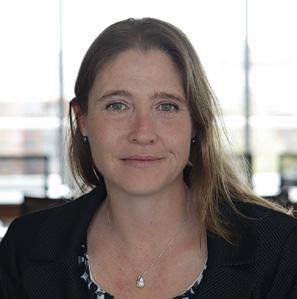
My grandmother-in-law made these rolls for every holiday meal- they are soft and pillowy and have always been a family favorite. I love continuing the tradition and making Mammaw’s potato rolls, using her rolling pin, and sometimes convincing my daughter to help out.

Ingredients
2/3 cup of butter
2/3 cup of sugar 1 tsp. salt
1 cup mashed potatoes, unseasoned
2 cups hot potato water (saved from the cooked potatoes) 2 packages dry active yeast (or 4 ½ tsp.)
2 eggs, lightly beaten 7 cups all-purpose flour (approx.)
In a large bowl, mix together the butter, sugar, salt, mashed potatoes, and hot potato water. Let cool until lukewarm (about 105 °F). Add yeast and eggs. Gradually add enough flour to form a soft dough. (Too much flour yields dry rolls; you may not need to use all 7 cups!)
Place dough in a well-greased large bowl; cover and let rise at least 1 hour. Roll out the dough on a floured surface to about ¾ inch thickness and cut out rolls using a biscuit cutter, drinking glass, etc.

Place rolls on a greased baking sheet and let rise a 2nd time, about 1 hour. Bake in an oven preheated to 375 °F for 10 minutes, or until light golden brown.
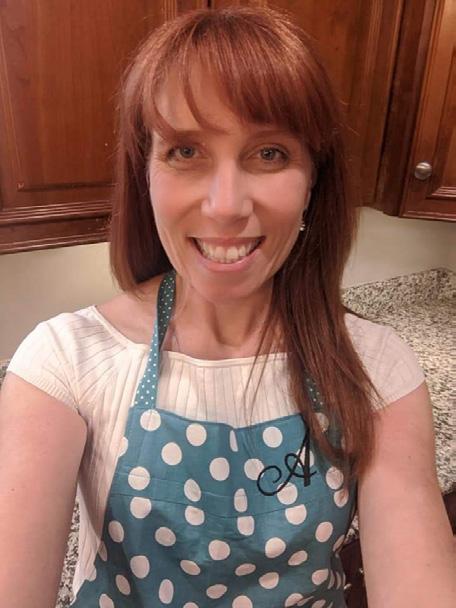
The NBA Premier Membership recognizes those members who desire to demonstrate the utmost in commitment and support to NBA programs and services. Contact Vicki.Shoulders@nashvillebar.org for information on how to become a Premier Member.
Gail Ashworth
Laura Baker
Daniel Berexa
Michael Berman
Mark Beveridge
Hon. Joe Binkley
Hon. Melissa Blackburn
Charles Bone
Dewey Branstetter
Hon. Joe B. Brown
Kenny Byrd Chris Cardwell
Loy Carney
Mark Chalos
Will Cheek
Daniel Clayton
Seth Cline
Todd Cole
Chris Coleman
Grover Collins
John Day Joy Day
Jackie Dixon
Hon. Marcus Floyd Keith Frazier
Barry Gammons
Dave Garrison
Andy Goldstein
John Griffin
Bill Harbison
Hon. Marian Harrison
Aubrey Harwell
Trey Harwell
Lisa Helton
Lloyd Houk
Paul Housch
Joseph Hubbard
Jan Jennings Andrew Kaufman
Jordan Keller
Chris Kelly John Kitch
Bill Koch
Irwin Kuhn
Ed Lanquist
Tom Lawless
Wendy Longmire
Kim Looney
Christina Lopez
Hon. Randal Mashburn
Sam McAllester
Hon. Amanda McClendon Hon. Carol McCoy
Bob Mendes
Margaret Moore Hon. Pat Moskal
Phil Newman
Paul Ney
Andrew Noell
Matt Painter
David Parsons
Greg Pease
Andrea Perry Tracy Powell
David Raybin David Ridings
Nathan Ridley
Chris Sabis
Joe Shelton
Kimberly Silvus
Martin Sir
Liz Sitgreaves
Ron Small
Eric Smith
Laura Smith
Saul Solomon
Kim Spann
John Spragens
Mike Stewart
Gerard Stranch
Jim Stranch
Meggan Sullivan
Chris Tardio
Hon. Jim Todd Hon. Aleta Trauger
Howard Vogel
Michael Wall
Liz Washko
Jim Weatherly
Carolyn Wenzel
Tom White
Tom Wiseman
Talley Wood
Ed Yarbrough
Bill Young
Stephen Young
Gulam Zade Stephen Zralek

We had the opportunity to talk with our new NBA president to get to know him better. We are excited about his leadership in the coming year.
Which living person do you most admire?
I most admire my father, Rauf Zade. He has made many sacrifices for our family and has always been a person that I have admired, respected, and appreciated!
What is your current state of mind?
I’m excited to be President of the NBA. I look forward to furthering the organization’s mission and ensuring its future success.
Which talent would you most like to have?
Personally, I’d like the ability to dunk on a 10-foot goal!
What do you consider your greatest achievement?
My greatest achievement is creating a life that brings me fulfillment. I have built a professional career that allows me to take on leadership roles like President of the NBA. More importantly, I have a family that I love and enjoy spending time with.
What is your most treasured possession?
My most treasured physical possession is my autographed Kobe Bryant Jersey, and my most treasured non-physical possession is my family.
What is your most marked characteristic?
My drive and persistence are qualities for which I’ve be come known.
Who are your heroes in real life?
I admire people who sacrifice shortterm benefits for themselves in exchange for long-term benefits for others.
What is your motto? Shooters Shoot. n
























Tom Trent, a partner at Bradley Arant Boult Cummings LLP, has been recognized for the third consecutive year with a 2022 Client Choice award presented by Lexology. He is the only attorney recognized in the area of Real Estate from the United States in the 2022 Client Choice list. Trent is a member of Bradley’s Economic Development Practice Group and the Real Estate team. He regularly works with national and regional clients, including major manufacturing companies, corporate users of commercial real estate, institutional investors, developers and lenders.

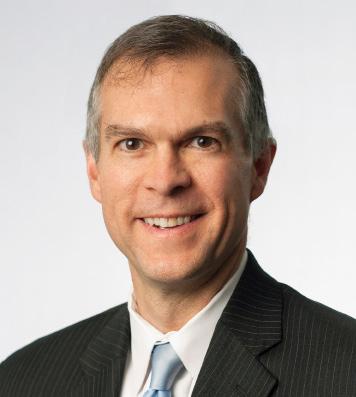
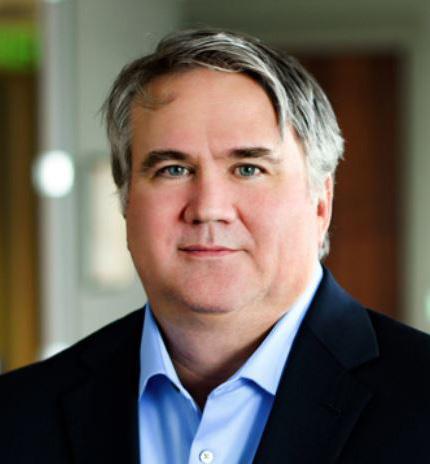
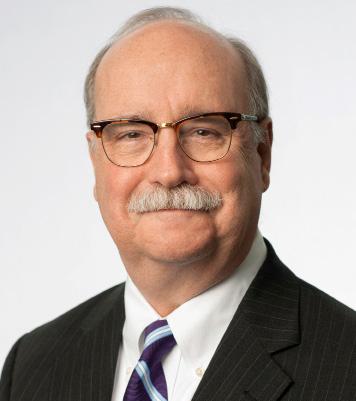
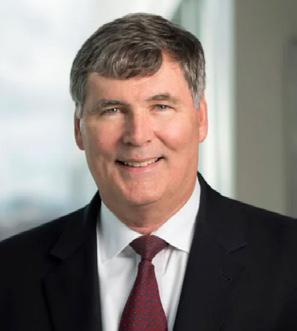

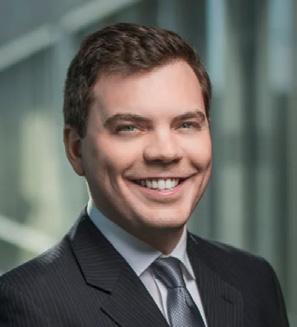
Matthew C. Lonergan , Chuck Mataya , and Craig Oliver have been named to the 2022 Benchmark Litigation Labor & Employment guide’s “Labor and Employment Stars” list, which recognizes lawyers who are highly regarded by their peers and possess a strong case record based on positive client feedback.
Casey L. Miller has been appointed to a DRI Young Lawyers Committee leadership role effective October 28, 2022.

With more than 1,500 members internationally, DRI is the largest international membership organization of attorneys defending the interests of business and individuals in civil litigation.
Nashville Conflict Resolution Center honored Nashvillians as “Community Heroes” during its annual Mediation Matters breakfast fundraising event at Hillwood Country Club. Among the honored is Bradley Arant Boult Cummings member, Bill Norton. A founder of Nashville Conflict Resolution Center, Norton has been a donor, board member, and weekly volunteer over the last twenty years.
Timothy L. Capria , has received Bradley’s 2022 Diversity Leadership Award. Established in 2015, Bradley’s Diversity Leadership Award recognizes a partner who demonstrates an exceptional commitment to promoting and advancing the firm’s goal of being a diverse and mutually supportive community providing a culture of inclusion, sensitivity, open-mindedness, and respect.
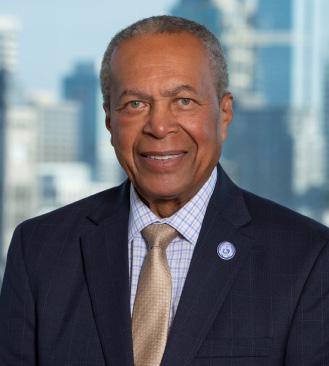
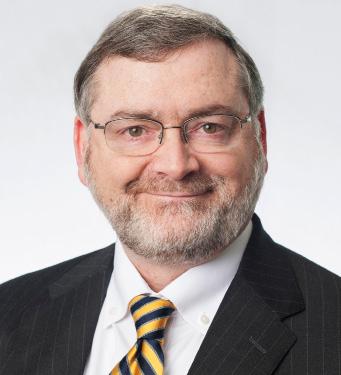
The American College of Trial Lawyers (ACTL) has installed John A. Day of The Law Offices of John Day, P.C. as its Secretary. Day was installed as Secretary at the College’s 2022 Annual Meeting in Rome, Italy. A total of 769 Fellows and guests from across North America
and Canada gathered in Rome to also induct 48 new Fellows and to discuss issues important to the profession.
Judge Monte D. Watkins has joined Neal & Harwell, PLC, as Of Counsel. Ronald G. Harris, Chief Administrator of the firm, said “We are excited that Judge Watkins has decided to join the Neal & Harwell team. Our entire community has been fortunate to have him serve as a criminal court judge for several years. We have always admired the wisdom of his judgments as well as the respect and fairness that he showed to all sides during his time on the bench. We look forward to working with him and believe his knowledge and experience will be invaluable to our firm and its clients.”
Adams and Reese is pleased to announce the addition of Silicon Valley veteran David Sawrie , bolstering the law firm’s global representation of technology companies, multinational corporations, and companies involved in IPOs and mergers and acquisitions. Sawrie is known for applying a unique working background in electrical engineering, math, science, and entrepreneurship, to design and execute patent roadmaps from the ground-up stage through successful execution of business strategies.
Nashville School of Law welcomes seven highly qualified professionals to its faculty for the 2022-2023 academic year. The new faculty members include Donald Capparella of Dodson Parker Behm and Capparella PC, Emily Harvey of Howard Mobley Hayes & Gontarek, PLLC, Rob Laser of Laser Law Firm, Hon. Patricia Head Moskal of Davidson County Chancery Court, Part 1, and Patrick Riley of Tennessee Court of Appeals (not pictured).
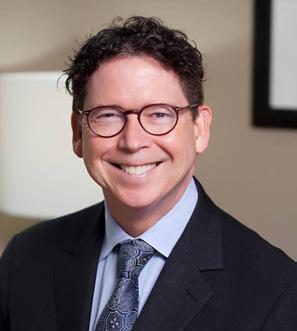
Announcing the 2023 YLD Board:

President , Beau Creson President-Elect , Casey Miller Treasurer , Callie Hinson Secretary , Cherrelle Hooper Events Director , Blake Bernard Professional Dev. Director, Grace Fox Public Service Director , Mark Lenihan
Events: Eric Evans, Grace Benitone, Kate Hamilton, Quynh-Anh Kibler, Pirjin Laser, Rachel Taylor, Austin Warehime, Elvira Rodriguez, Mary Stoner, Richard Swore, Lindsey Shepard, Diamond Stewart, and Eric Evans
Public Service: Taylor Ward, Evan Rothey, Tanner Gibson, Olivia Park, Regan Sherrell, and Angela Williams
STATEMENT OF OWNERSHIP
Required by DMM 207.8.3.3; USPS Form 3685
1. Publication Title: Nashville Bar Journal
2. Publication Number/ISSN: 21962/15487113
3. Filing Date: 10/3/21
4. Issue Frequency: Bi-monthly
5. Number of Issues Published Annually: 6
6. Annual Subscription Price: $25.00
7. Mailing Address of Office of Publication: Nashville Bar Association, 150 4th Ave N, Ste 1350, Nashville, TN 37219-2419
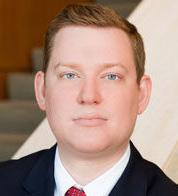
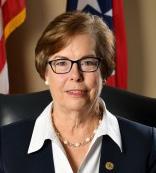
8. Mailing Address of Headquarters of Publisher: Same
9. Publisher: Adrienne Bennett Cluff, Editor: Bill Ramsey, Managing Editor: Caroline Sapp, 150 4th Ave N, Ste 1350, Nashville, TN 37219-2419
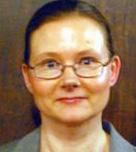
10. Owner: Nashville Bar Association
11. Known Bondholders, Mortgagees and Other Security Holders Owning or Holding 1% or More of Total Amount of Bonds, Mortgages or Other Securities: None
12. The purpose, function, and nonprofit status of this organization and the exempt status for federal income tax purposes has not changed during preceding 12 months.
13. Publication Title: Nashville Bar Journal 14. Issue Date for Circulation Data: 08/02/22 15. Extent & Nature of Circulation:
of Mail Through the USPS 4 4
Joshua E. Barza has joined Bradley Arant Boult Cummings LLP’s Nashville office as a senior attorney in the Corporate & Securities Practice Group. Prior to joining the firm, Barza served as director of business operations for a biotechnology research startup where he regularly oversaw corporate governance and legal matters. He also has experience representing private equity firms and other private investment firms in corporate and capital market transactions and has provided strategic counsel on private company mergers, equity and asset acquisitions, joint ventures, and investments in domestic and international transactions.
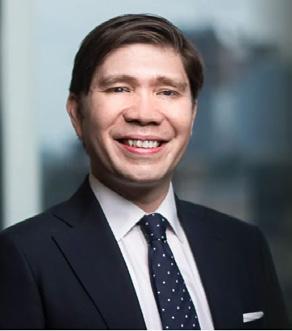
Professional Development: Devon Williamson, Caleb Hogan, Jae Lim, Hayley Baker, Haylie Craver Robbins, Ryan Loofbourrow, Quan Poole, Kevin Elkins, and Claire Fox Hodge
Bar Liasons: Hannah Kay Hunt Freeman, Angela Williams, Katherine Fischman, and Diamond Stewart n
Copies Not Distributed 25 25
17. This statement of ownership will be printed in the December/January 2022-23 issue. 18. I certify that all information furnished on this form is true and complete. I understand that anyone who furnishes false or misleading information on this form or who omits material or information requested on the form may be subject to criminal sanctions (including fines and imprisonment) and/or civil sanctions (including multiple damages and civil penalties) — Adrienne Bennett Cluff, Marketing & Communications Coordinator, Nashville Bar Association, November 16, 2022
The Nashville Bar Association 100% Club is a special category of membership that demonstrates a commitment to the legal profession and our community from legal organizations with more than three attorneys that have 100% of their Nashville attorneys as members of the NBA. To become part of NBA’s 100% Club, contact Vicki.Shoulders@nashvillebar.org and support your local bar association today!
Adams and Reese, LLP
Baker Donelson Bradley
Branstetter, Stranch & Jennings, PLLC
Brewer, Krause, Brooks & Chastain, PLLC
Butler Snow, LLP
Cole Law Group, P.C. Company
Constangy, Brooks, Smith & Prophete, LLP
Cornelius & Collins, LLP
DarrowEverett LLP
Dickinson Wright, PLLC
Dodson Parker Behm & Capparella, PC
Equitable Trust Company
Evans, Jones & Reynolds, PC
Farris Bobango, PLC
Fisher & Phillips LLP
Frazer PLC
Grissim & Hodges
Gullett, Sanford, Robinson & Martin, PLLC
Hall Booth Smith, PC
Healthcare Realty Trust, Inc. Holton & Mayberry, PC
Jeffery S. Roberts & Associates, PLLC
Kay Griffin, PLLC
Keller, Turner, Andrews & Ghanem, PLLC
Kinnard Law
Klein Solomon Mills, PLLC
Latitude
Law Offices of John Day, PC
LBMC, P.C.
Legal Aid Society of Middle TN
Leitner, Williams, Dooley & Napolitan, PLLC
Lewis Thomason, P.C.
Lieff, Cabraser, Heimann & Bernstein, LLP
Lindsey Amonette Nemer + Glassford PLLC
Martin Heller Potempa & Sheppard, PLLC
May & McKinney, PLLC
McCarter & Beauchamp, PLLC
McCracken - Kuhn, PLLC
Meridian Law, PLLC
Morgan & Akins, PLLC
Nashville Electric Service
Neal & Harwell, PLC
Nelson, Mullins, Riley & Scarborough, LLP
North, Pursell & Ramos, PLC
Ogletree, Deakins, Nash, Smoak & Stewart, PC
Ortale Kelley Law Firm
Parker, Lawrence, Cantrell & Smith
Patterson Intellectual Property Law, PC
Pepper Law, PLC
Rainey, Kizer, Reviere & Bell PLC
Raybin & Weissman, PC
Reno & Cavanaugh, PLLC
Riley & Jacobson, PLC
Robinson, Reagan & Young, PLLC
Rogers, Shea, Spanos
Rudy Winstead Turner PLLC
Shackelford, Bowen, McKinley & Norton, LLP
Sims|Funk, PLC
Smith Cashion & Orr, PLC
Smythe Huff & Murphy, PC
Southern Environmental Law Center
Spencer Fane Bone McAllester
Spicer Rudstrom, PLLC
Starnes Davis Florie, LLP
Stites & Harbison, PLLC
Sutherland & Belk, PLC
Swafford Law
Taylor, Pigue, Marchetti & Blair, PLLC
Tennessee Innocence Project
The Blair Law Firm
Watkins & McNeilly, PLLC
Wiseman | Ashworth | Trauger
Wood Stabell Law Group
Wyatt, Tarrant & Combs, LLP





Most of the over 3 million U.S. veterans eligible for these non-service- connected VA benefits have no idea these benefits exist.

Takacs McGinnis Elder Care Law has helped thousands of veterans and their surviving spouses secure these lifechanging benefits as part of a comprehensive estate plan. When you trust our team to guide your clients through the eligibility process, VA claims are filed at the right time and in the right way, while preserving family assets to the greatest extent possible.
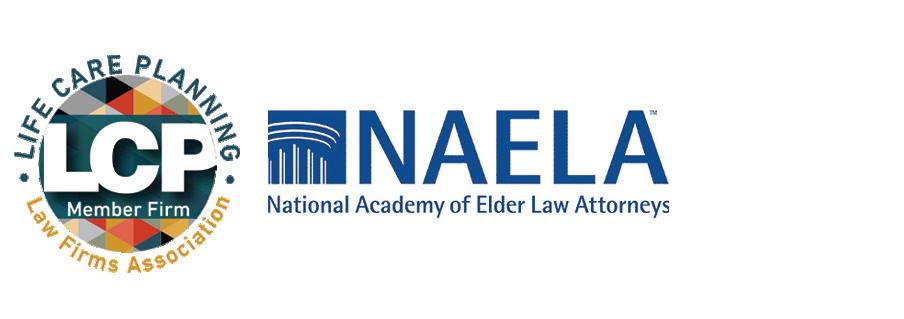
We can help your clients, too. Give us a call today.


